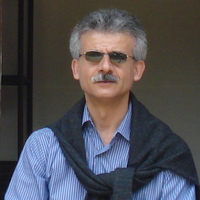Papers by Kim Gunnar Helsvig

Springer eBooks, Aug 9, 2013
The Abel Prize in Mathematics was created by the Norwegian government in 2002 in memory of the ma... more The Abel Prize in Mathematics was created by the Norwegian government in 2002 in memory of the mathematician Niels Henrik Abel (1802–1829). The aim was to establish an annual Abel Prize of NOK 6 million (about US$ 1.1 mill.) that would be world leading in mathematics. The creation of the prize was the result of a short and successful campaign in the spring and summer of 2001, when it was presented as “the missing Nobel Prize in mathematics”. The campaign was based on a powerful mobilization of the history of mathematics and of the dissolution of the union between Sweden—the home of the Nobel Prizes—and Norway in 1905. Mobilization was very well received by both an international mathematical community which for a hundred years had been longing for a scientific prize at the highest level, and by a Norwegian political community that had long been expressing increasing concerns about a lack of interest and competence in the natural sciences throughout the entire Norwegian schooling and higher education system. The Swedish Nobel Foundation nevertheless found repeated presentation of the new prize—“a Nobel in mathematics”—to be quite inappropriate. The article deals with how the Abel Prize was successfully established in the relatively mathematical periphery of Norway, and with how well it has lived up to high expectations during its first ten years.
Norsk pedagogisk tidsskrift, 2006
Norsk pedagogisk tidsskrift, 2013
Nytt Norsk Tidsskrift, 2022
International Journal of Technology Management, 2009
The Norwegian Academy of Science and Letters, founded in 1857, is a non-governmental, nationwide ... more The Norwegian Academy of Science and Letters, founded in 1857, is a non-governmental, nationwide , and interdisciplinary body which embraces all fields of learning. Its main purpose is to support the advancement of science and scholarship in Norway. In addition to organising academy meetings, national and international symposia, the academy has been given the responsibility for conferring prestigious international scientific prizes. Local and global challenges and the position of a traditional academy in a small country, situated in a strategically important, but remote part of Europe, are discussed. Through its memberships in various international scientific organisations, the academy plays an increasing national role in the promotion of international scientific relations.

Centaurus, 2014
sent an e-mail to the president of the International Mathematical Union, Jacob Palis. Laudal desc... more sent an e-mail to the president of the International Mathematical Union, Jacob Palis. Laudal described a campaign that was recently launched by some activists in the department to establish a prize in mathematics. They hoped it would persuade the international mathematical community and Norwegian politicians ".. . to present the Abel Prize as the 'missing Nobel Prize' in mathematics". 1 Until quite recently, no mathematician had suggested that the time was right to establish a scientific prize in mathematics comparable to the various Nobel Prizes. It is true that there existed several international prizes in mathematics, but the obvious absence of a prize that could be compared with the most prestigious prizes in physics, chemistry and medicine had been a source of frustration among mathematicians ever since the Nobel Prizes were first awarded in 1901. The mathematical community had apparently learned to live with this frustration, but when the initiative to establish a prize in mathematics on the same level as the Nobel was suddenly introduced from the mathematical periphery of Norway, it was a wakeup call that resonated with mathematicians. The initiative would in a short time gain support, not only among Norwegian mathematicians, but also in the international mathematical community as well as from influential sectors of Norwegian society. Only after a few months of the campaign being launched in the spring of 2001, the Norwegian government decided to set aside NOK 200 million (approximately USD 35 million)
Center for Studies in Higher Education, 2002
This article revises Norwegian higher education debate from the publication of a radical reform p... more This article revises Norwegian higher education debate from the publication of a radical reform proposal made by a government committee in May 2000 until the closure of the reform process in the parliament in May 2001. It is argued that a great rhetorical divide between neo-liberal and Humboldtian concepts of higher education characterized the debate, and that this to some extent distorted the coherence of the final solutions. Nevertheless, it is maintained that the reform is quite likely to instigate a period of profound changes in the national higher education system.
Center For Studies in Higher Education, 2002
This article revises Norwegian higher education debate from the publication of a radical reform p... more This article revises Norwegian higher education debate from the publication of a radical reform proposal made by a government committee in May 2000 until the closure of the reform process in the parliament in May 2001. It is argued that a great rhetorical divide between neo-liberal and Humboldtian concepts of higher education characterized the debate, and that this to some extent distorted the coherence of the final solutions. Nevertheless, it is maintained that the reform is quite likely to instigate a period of profound changes in the national higher education system.
Gestion Y Analisis De Politicas Publicas, May 20, 1999
Administración para el desarrollo económico Desde mi punto de vista, la reforma administrativa, i... more Administración para el desarrollo económico Desde mi punto de vista, la reforma administrativa, iniciada en 1957, indujo un proceso que facilitó la disolución del régimen franquista al afectar no sólo la cultura política e intelectual sino también la política en sí. La historia de esta reforma y la subsecuente transición a la democracia es no obstante la historia de una serie de consecuencias no intencionadas.. Con el objeto de entender la dinámica de este proceso debemos remontarnos a diciembre de 1956 cuando Laureano López Rodó fue designado
Gestion Y Analisis De Politicas Publicas, May 20, 1999
Administración para el desarrollo económico Desde mi punto de vista, la reforma administrativa, i... more Administración para el desarrollo económico Desde mi punto de vista, la reforma administrativa, iniciada en 1957, indujo un proceso que facilitó la disolución del régimen franquista al afectar no sólo la cultura política e intelectual sino también la política en sí. La historia de esta reforma y la subsecuente transición a la democracia es no obstante la historia de una serie de consecuencias no intencionadas.. Con el objeto de entender la dinámica de este proceso debemos remontarnos a diciembre de 1956 cuando Laureano López Rodó fue designado











Uploads
Papers by Kim Gunnar Helsvig